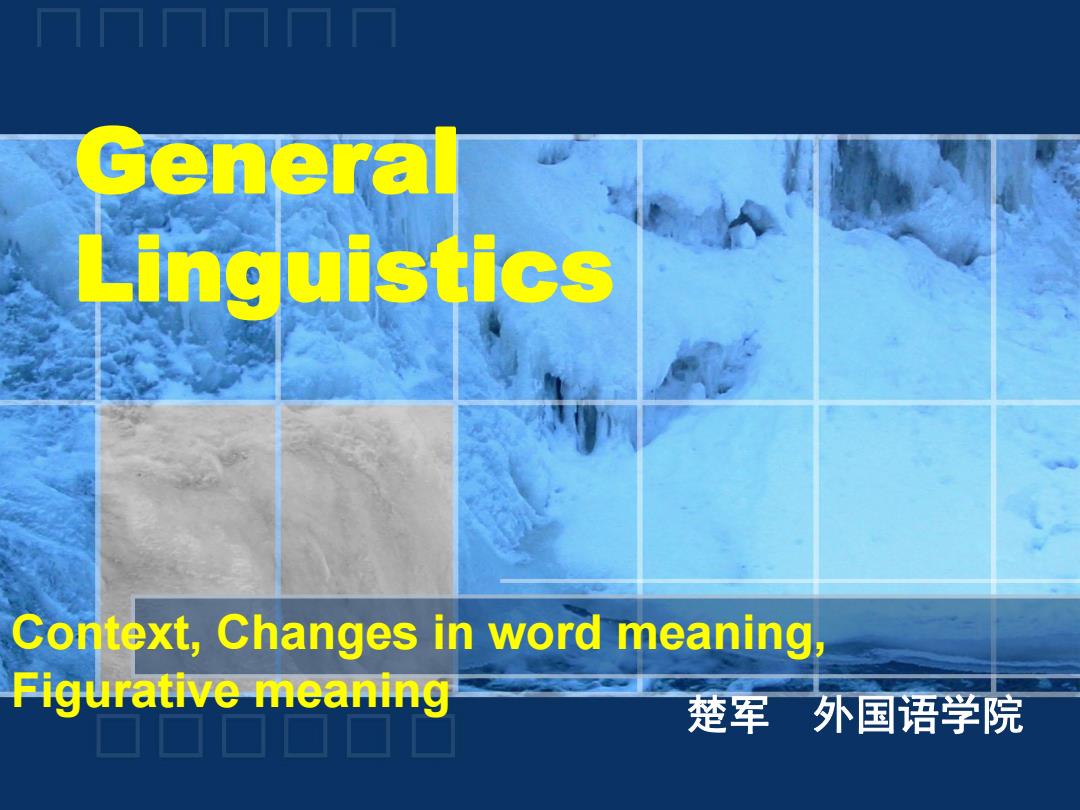
General Linguistics Context,Changes in word meaning, Figurative meaning 楚军外国语学院
Context, Changes in word meaning, Figurative meaning 楚军 外国语学院 General Linguistics
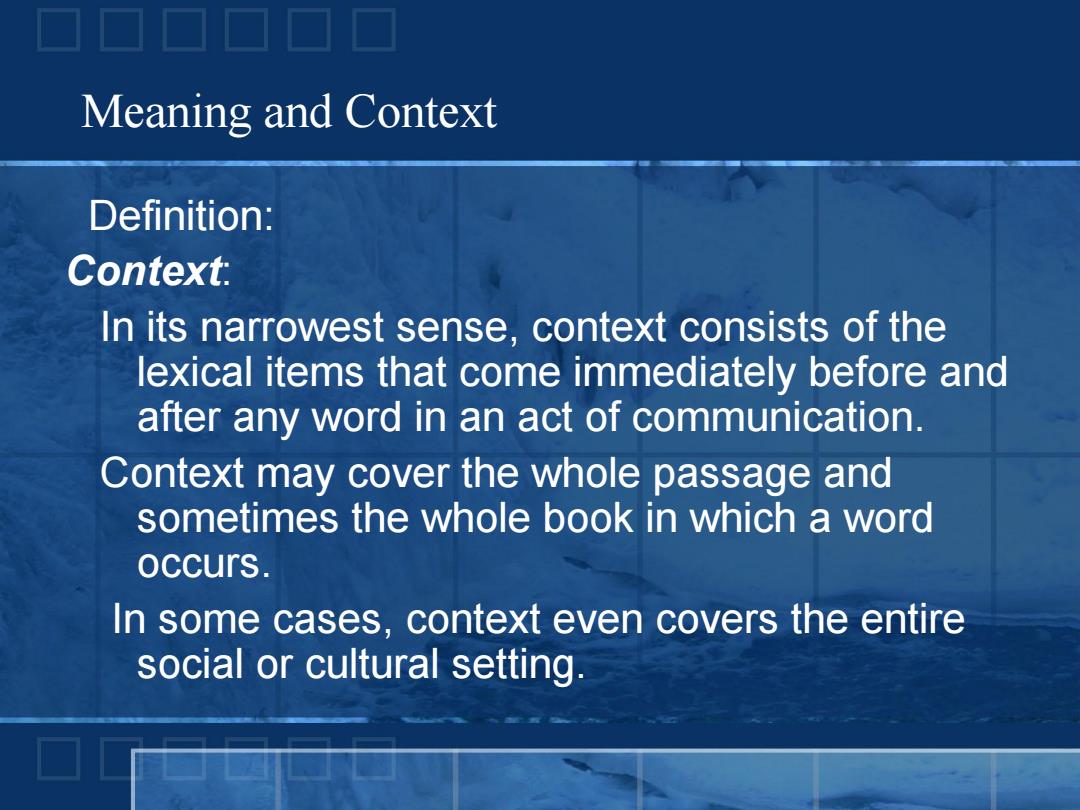
Meaning and Context Definition: Context: In its narrowest sense,context consists of the lexical items that come immediately before and after any word in an act of communication. Context may cover the whole passage and sometimes the whole book in which a word occurs. In some cases,context even covers the entire social or cultural setting
Meaning and Context Definition: Context: In its narrowest sense, context consists of the lexical items that come immediately before and after any word in an act of communication. Context may cover the whole passage and sometimes the whole book in which a word occurs. In some cases, context even covers the entire social or cultural setting
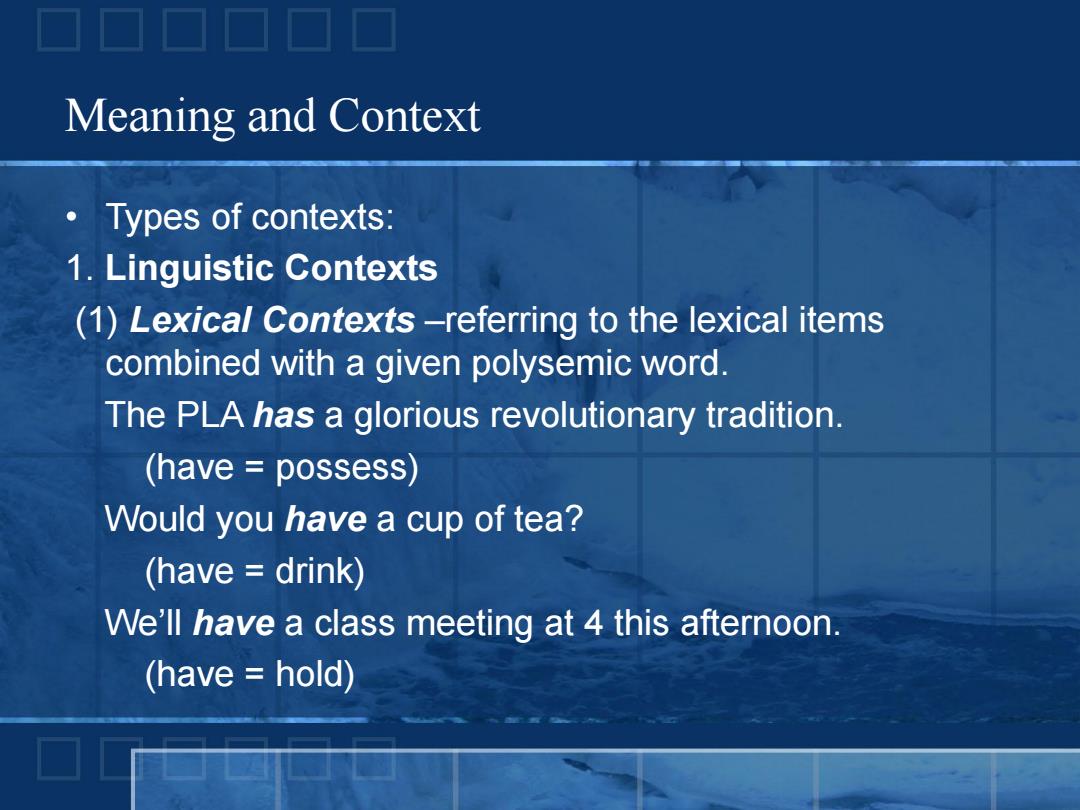
Meaning and Context ·Types of contexts: 1.Linguistic Contexts (1)Lexical Contexts-referring to the lexical items combined with a given polysemic word. The PLA has a glorious revolutionary tradition. (have possess) Would you have a cup of tea? (have drink) We'll have a class meeting at 4 this afternoon. (have hold)
Meaning and Context • Types of contexts: 1. Linguistic Contexts (1) Lexical Contexts –referring to the lexical items combined with a given polysemic word. The PLA has a glorious revolutionary tradition. (have = possess) Would you have a cup of tea? (have = drink) We’ll have a class meeting at 4 this afternoon. (have = hold)
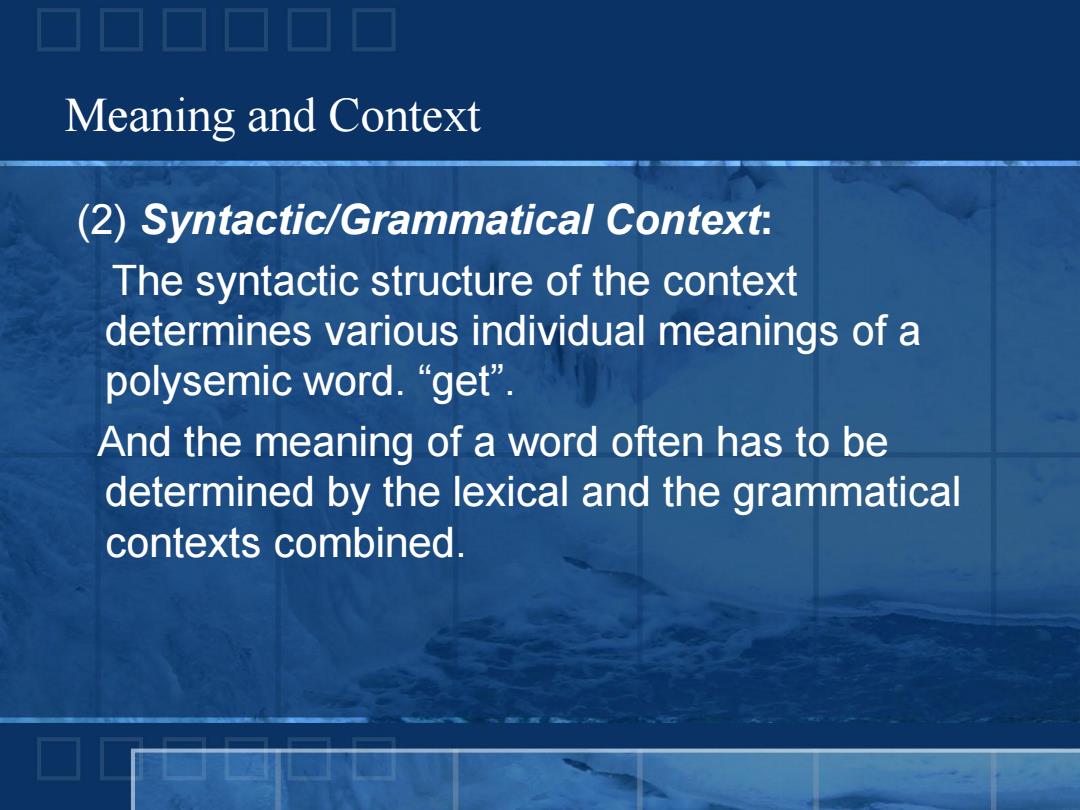
Meaning and Context (2)Syntactic/Grammatical Context: The syntactic structure of the context determines various individual meanings of a polysemic word..“get”. And the meaning of a word often has to be determined by the lexical and the grammatical contexts combined
(2) Syntactic/Grammatical Context: The syntactic structure of the context determines various individual meanings of a polysemic word. “get”. And the meaning of a word often has to be determined by the lexical and the grammatical contexts combined. Meaning and Context
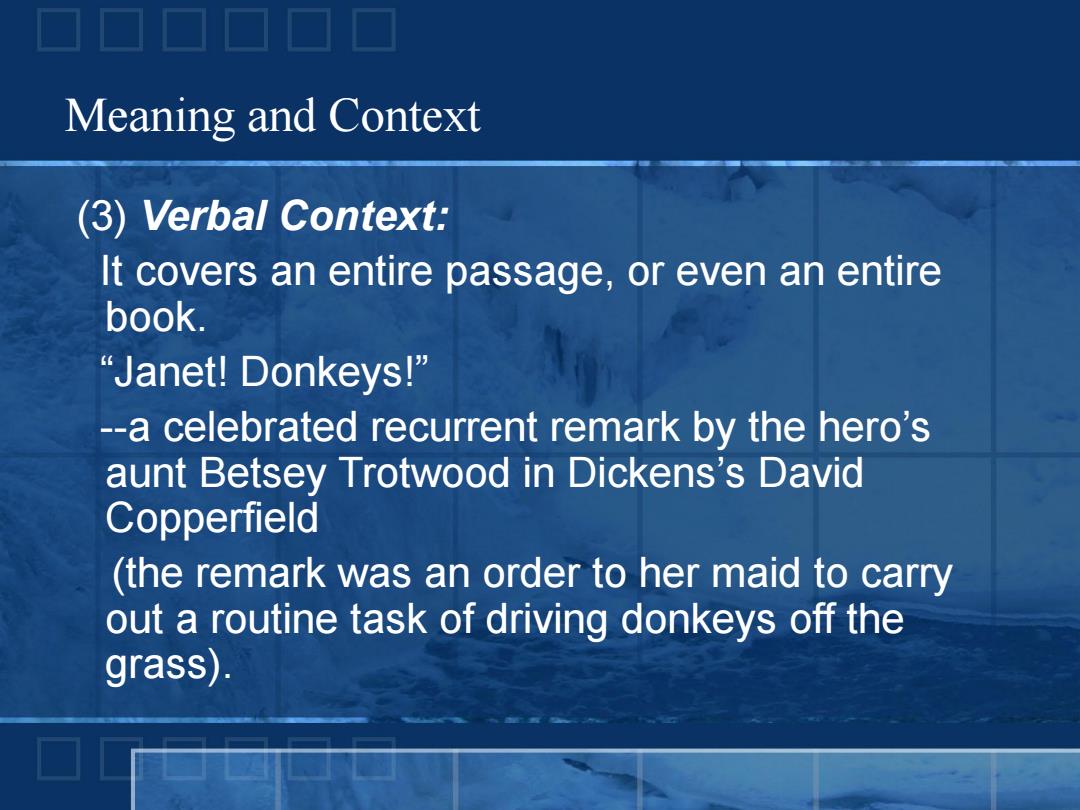
Meaning and Context (③)Verbal Context: It covers an entire passage,or even an entire book. “Janet!Donkeys!" --a celebrated recurrent remark by the hero's aunt Betsey Trotwood in Dickens's David Copperfield (the remark was an order to her maid to carry out a routine task of driving donkeys off the grass)
(3) Verbal Context: It covers an entire passage, or even an entire book. “Janet! Donkeys!” --a celebrated recurrent remark by the hero’s aunt Betsey Trotwood in Dickens’s David Copperfield (the remark was an order to her maid to carry out a routine task of driving donkeys off the grass). Meaning and Context
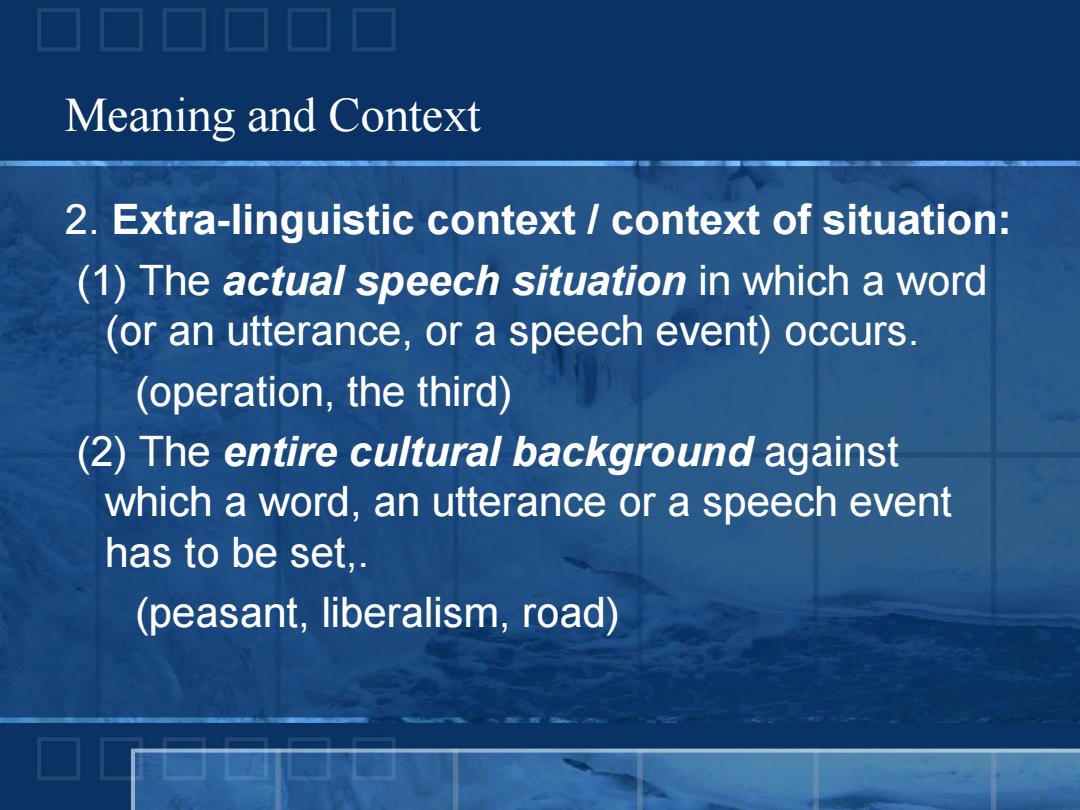
Meaning and Context 2.Extra-linguistic context context of situation: (1)The actual speech situation in which a word (or an utterance,or a speech event)occurs. (operation,the third) (2)The entire cultural background against which a word,an utterance or a speech event has to be set,. (peasant,liberalism,road)
2. Extra-linguistic context / context of situation: (1) The actual speech situation in which a word (or an utterance, or a speech event) occurs. (operation, the third) (2) The entire cultural background against which a word, an utterance or a speech event has to be set,. (peasant, liberalism, road) Meaning and Context
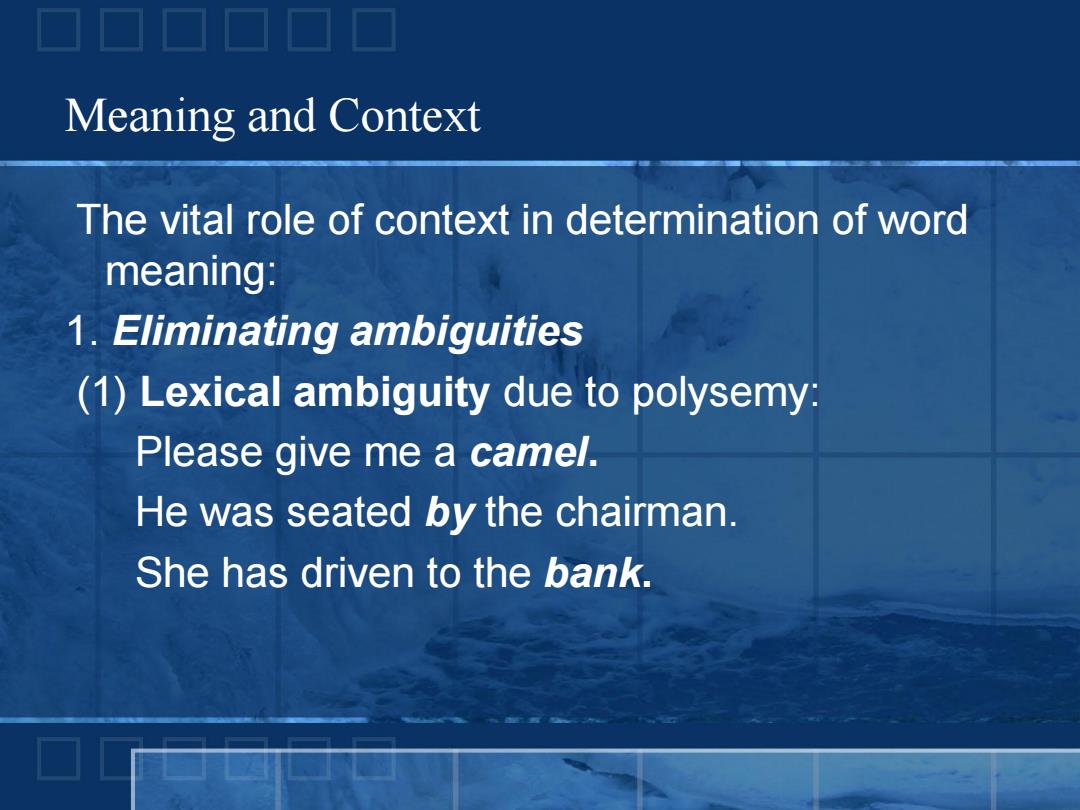
Meaning and Context The vital role of context in determination of word meaning: 1.Eliminating ambiguities (1)Lexical ambiguity due to polysemy: Please give me a camel. He was seated by the chairman. She has driven to the bank
The vital role of context in determination of word meaning: 1. Eliminating ambiguities (1) Lexical ambiguity due to polysemy: Please give me a camel. He was seated by the chairman. She has driven to the bank. Meaning and Context
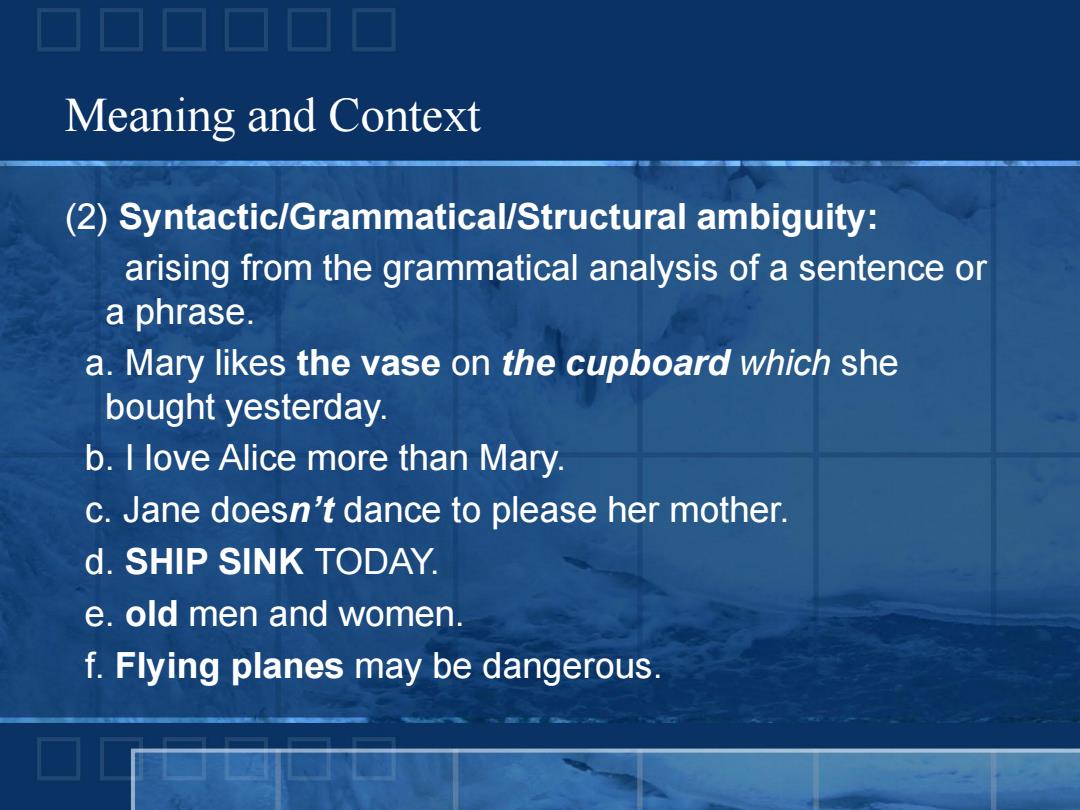
Meaning and Context (2)Syntactic/Grammatical/Structural ambiguity: arising from the grammatical analysis of a sentence or a phrase. a.Mary likes the vase on the cupboard which she bought yesterday. b.I love Alice more than Mary. c.Jane doesn't dance to please her mother. d.SHIP SINK TODAY. e.old men and women. f.Flying planes may be dangerous
Meaning and Context (2) Syntactic/Grammatical/Structural ambiguity: arising from the grammatical analysis of a sentence or a phrase. a. Mary likes the vase on the cupboard which she bought yesterday. b. I love Alice more than Mary. c. Jane doesn’t dance to please her mother. d. SHIP SINK TODAY. e. old men and women. f. Flying planes may be dangerous
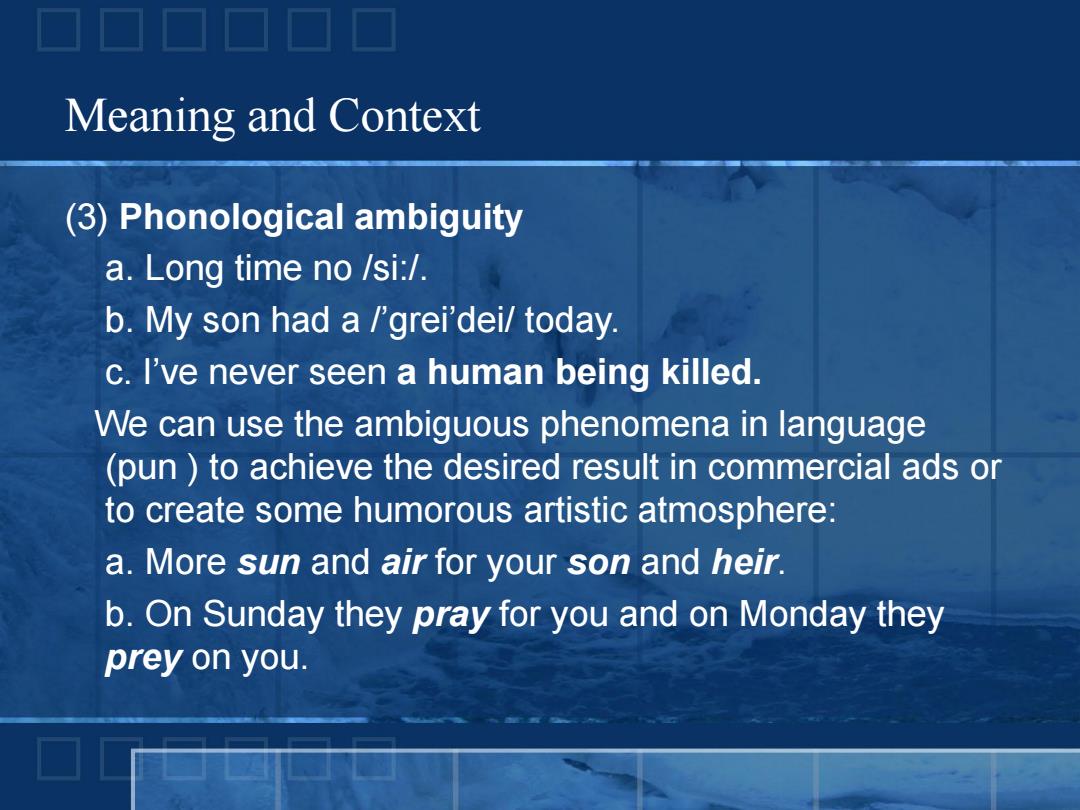
Meaning and Context (3)Phonological ambiguity a.Long time no /si:/. b.My son had a /'grei'dei/today. c.I've never seen a human being killed. We can use the ambiguous phenomena in language (pun to achieve the desired result in commercial ads or to create some humorous artistic atmosphere: a.More sun and air for your son and heir. b.On Sunday they pray for you and on Monday they prey on you
(3) Phonological ambiguity a. Long time no /si:/. b. My son had a /’grei’dei/ today. c. I’ve never seen a human being killed. We can use the ambiguous phenomena in language (pun ) to achieve the desired result in commercial ads or to create some humorous artistic atmosphere: a. More sun and air for your son and heir. b. On Sunday they pray for you and on Monday they prey on you. Meaning and Context
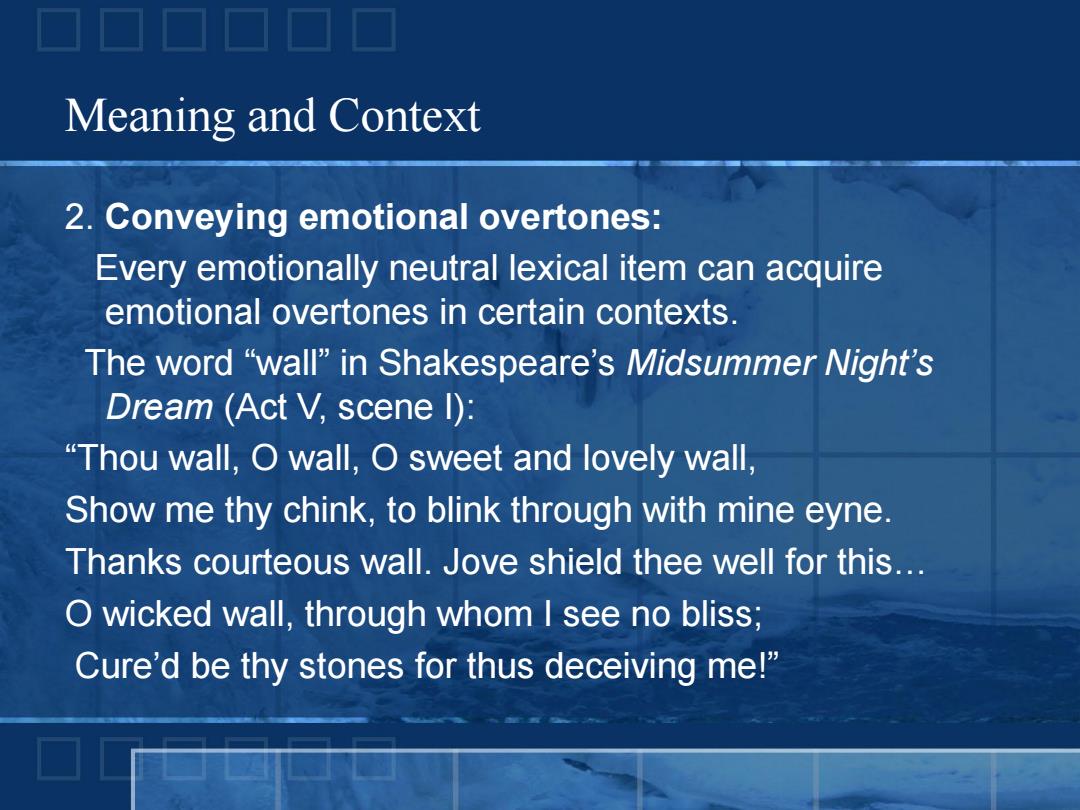
Meaning and Context 2.Conveying emotional overtones: Every emotionally neutral lexical item can acquire emotional overtones in certain contexts. The word "wall"in Shakespeare's Midsummer Night's Dream (Act V,scene l): 'Thou wall,O wall,O sweet and lovely wall, Show me thy chink,to blink through with mine eyne. Thanks courteous wall.Jove shield thee well for this... O wicked wall,through whom I see no bliss; Cure'd be thy stones for thus deceiving me!
Meaning and Context 2. Conveying emotional overtones: Every emotionally neutral lexical item can acquire emotional overtones in certain contexts. The word “wall” in Shakespeare’s Midsummer Night’s Dream (Act V, scene I): “Thou wall, O wall, O sweet and lovely wall, Show me thy chink, to blink through with mine eyne. Thanks courteous wall. Jove shield thee well for this… O wicked wall, through whom I see no bliss; Cure’d be thy stones for thus deceiving me!